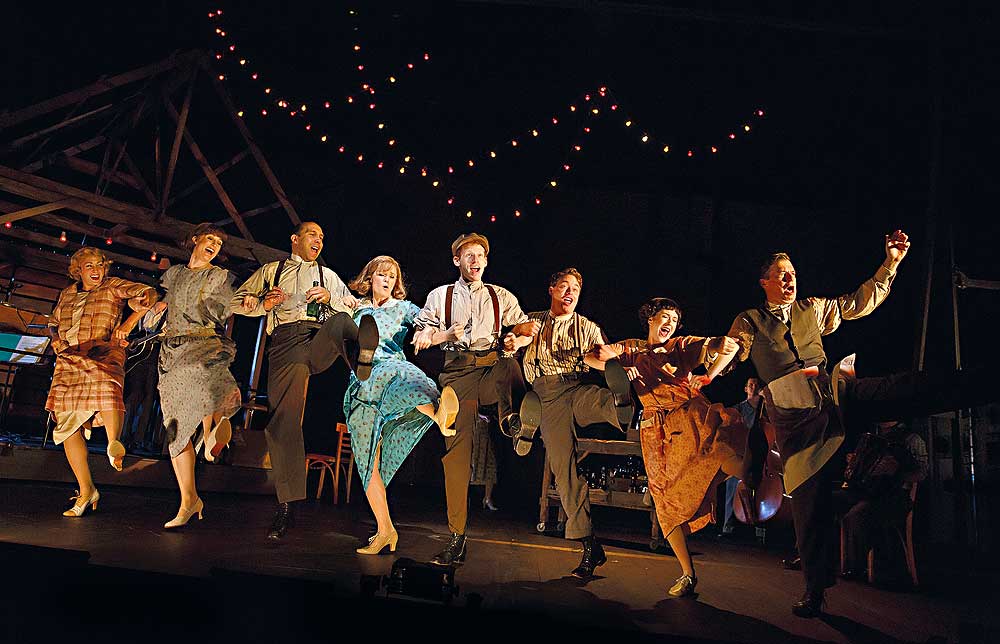SAN DIEGO, CA.: The opening lyrics would have to change.
“When you get to Asheville / Send me an e-mail,” chirped sweetly and simply over a loping banjo line, is the beguiling, scene-setting first phrase of “Love Has Come for You,” the Grammy-winning 2013 album from Edie Brickell, a one-hit wonder from the late 1980s (“What I Am”), and Steve Martin, the film-comedy giant who’s built credible side careers as a playwright and a bluegrass bandleader. While that opening salvo—casually linking an old-time sound and a contemporary reference—gave notice right away that their album would be more than just a vintage throwback, the new musical that emerged from the unlikely Brickell/Martin collaboration, Bright Star, is resolutely a period piece, set in the Blue Ridge Mountains of North Carolina in the 1940s. It tells the story of a young soldier who returns from the war to uncover a life-changing secret from his past.
The idea of writing a musical with Martin came up in conversation on the last day they were recording their album, says Brickell, interviewed in the midst of rehearsals for Bright Star’s premiere at San Diego’s Old Globe, where it plays through Nov. 2. “We had a similar desire and intention—we were hoping we could make a musical like the ones we grew up with and just adored.”
Writing a musical, though, necessitated a new batch of songs—in fact, that opening song is one of only two from the album that have survived in the transition to the stage. But Brickell is embracing the challenge.
“To have a character speak through a song—I think I found my niche,” she effuses. “I love putting myself in the moment of their experience, and what is it that I would say? It’s allows you to bring a greater range of emotion and color to songwriting.”
The sense of novelty is noted all around. Says veteran director Walter Bobbie (Chicago, Venus in Fur), “Steve will create these chord progressions on the banjo, a whole bed of music, and Edie will write melodies on top of it. Two creators are responsible for the music in a way I’ve never seen before.”
And that opening anachronism? Says Brickell, “I’ve changed those lyrics to ‘When you get to Asheville / Write me, if you will.’”
For an expanded Q&A with Brickell, go here.


